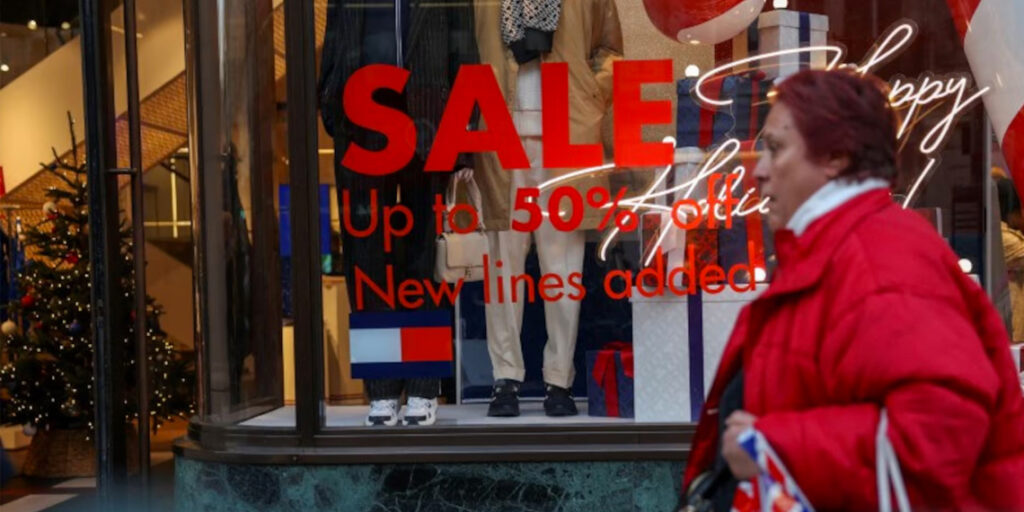British retail sales unexpectedly declined in December, intensifying fears of an economic contraction in the fourth quarter and adding pressure on Chancellor Rachel Reeves.
Figures from the Office for National Statistics (ONS) revealed a 0.3% drop in retail sales for December, adjusted to account for Black Friday sales earlier in the month. This followed a downwardly revised 0.1% rise in November.
The data caused sterling to fall by a quarter of a cent against the dollar, slipping below $1.22, while gilt yields also dropped, reversing a surge from last week that briefly evoked memories of the financial turmoil triggered by Liz Truss’s 2022 “mini-budget.”
Appearing on a BBC podcast, Reeves stated she is ignoring critics and remains committed to making tough decisions aimed at driving economic growth.
Economists polled by Reuters had anticipated a 0.4% increase in monthly retail sales, making the December figures a notable disappointment.
The ONS reported that retail sales for the fourth quarter as a whole fell by 0.8%, contributing to a 0.04 percentage point drag on economic growth.
With GDP flatlining in the three months to November, weak retail sales alone could push the economy into contraction unless offset by growth in other sectors.
Elliott Jordan-Doak, senior UK economist at Pantheon Macroeconomics, commented: “Softening sales add to disappointment from November GDP figures earlier this week, suggesting the economy stagnated in Q4 or may even have contracted slightly. The Bank of England (BoE) has a window to cut rates in February, which we expect them to take.”
Excluding motor fuel, retail sales dropped by 0.6% in December. The decline was led by food sales, which plummeted to their lowest levels since 2013, with supermarkets particularly hard-hit. Senior ONS statistician Hannah Finselbach noted: “This was driven by a very poor month for food sales.”
The bleak retail performance adds to the economic challenges following Reeves’s October budget, which introduced the largest tax hikes since 1993. Coupled with lacklustre economic data, expectations are rising for a BoE interest rate cut in the coming month.
Retail sales figures, especially for December, are historically volatile and subject to revisions, but the immediate outlook suggests a challenging start to the new year for the UK economy.


